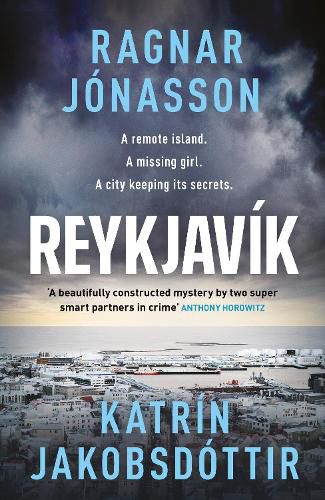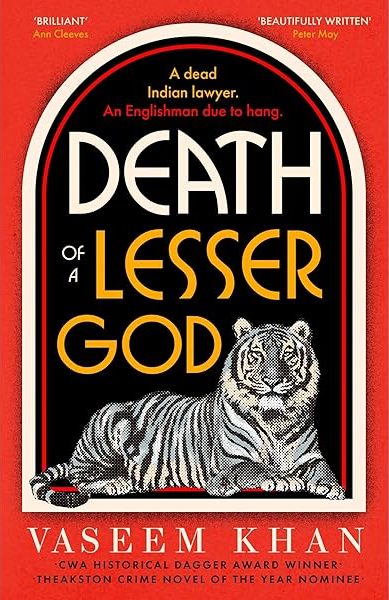
Iceland has been voted the safest place to live in the world, however Icelandic crime writers ignore these statistics, says book reviewer ANNA CREER.
ICELAND has been voted the safest place to live in the world 12 times. On average, there’s only one murder committed each year.

However, Icelandic crime writers ignore these statistics, writing relentlessly dark stories of crimes of passion, serial killers and the dangers of the environment.
It’s therefore not surprising that Iceland’s current Prime Minister, Katrin Jakobsdottir, wrote her Master’s thesis on Icelandic crime writing.
She has said: “Every politician needs to have something to take his or her mind from the daily business of politics… and I’ve been reading crime fiction all my life, so it’s kind of in my DNA”.
Jakobsdottir has been friends with one of the most successful of Iceland’s crime writers, Ragnar Jonasson, since they met on a jury deciding the best crime novel translated into Icelandic that year.
In February 2020 he suggested that they co-write a crime novel. “Writing is a lonely thing and I thought it would be much more fun doing it with a friend”.
When the pandemic struck, Jakobsdottir accepted his offer, realising that this was the time to write the book. “Reykjavik” is the result. She says that writing it “saved my mental health”.
Jonasson suggested setting the novel in 1986, a year of significant change in Iceland. The year Reykjavik celebrated its 200th year anniversary; the year a second radio station opened and TV began and the year Iceland hosted the Reagan-Gorbachev summit, which Jacobsson describes as “the biggest thing to hit Iceland”.
Against this backdrop, an ambitious young journalist, Valur, decides to investigate the unsolved case of the disappearance of 15-year-old Lara 30 years earlier. She had gone to the small island of Videy, off the coast of Reykjavik, to work for a wealthy couple.
They tell the police she left suddenly one night, but Lara hasn’t been seen since.
Valur has convinced his editor that Lara’s story sells newspapers and is confident he can solve the mystery and find Lara. But Valur is unaware that someone is willing to go to any lengths to ensure the truth is never revealed.
“Reykjavik” is compulsive reading, as Jonasson and Jakobsdottir explore the power of loyalty in a stylishly crafted, tragic mystery.
ALTHOUGH Vaseem Khan is British born, it was the decade he lived in India that has inspired his crime writing.

Khan is the author of two award-winning crime series, the “Baby Ganesh Agency” series set in modern Mumbai, and the “Malabar House” historical crime novels set in 1950s Bombay, just after independence. He says that this series is his “attempt to look at a period of Indian history that’s not often examined in fiction… a couple of years after Gandhi’s assassination and the horrors of partition”.
“Death of a Lesser God” is the fourth in the series featuring Khan’s remarkable detective, Inspector Persis Wadia, India’s first female police detective who struggles to assert herself in a paternalistic, misogynistic society. Her appointment had “occasioned hysteria” in the press.
Although she topped her year at the academy, Persis has been sidelined to a crime unit in Malabar House, “a menagerie of misfits… the unwanted and the undesirables” exiled and despised for blunders and mistakes.
Persis’ mistake is that she is female, smart, stubborn with a “prickly personality” and a refusal to conform, which means she’s seen as a troublemaker.
However, she has proven an astute, intuitive detective and, as “Death of a Lesser God” begins, she is given a special assignment by the Deputy Commissioner of Police, Amit Shukla. He asks her to re-examine the James Whitby case and tells her “to go over the case, but do not attract attention”.
Whitby, a white man born in India, son of a wealthy colonialist has been found guilty of the murder of prominent lawyer and Quit India activist Fareed Muzumdar. Whitby is due to be hanged in 11 days, when “he will become the first – and quite probably the last – Englishman to be executed by the Indian government”.
Shulka asks Persis: “Can you imagine the repercussions if we were to hang an innocent white man?”
Persis’ investigation leads her to Calcutta and the murder of an Indian nightclub singer and a black American reporter in the Calcutta killings of 1946.
“Death of a Lesser God” is an extraordinary story of power and politics, love and obsession, as Persis battles crocodiles and tigers both literally and figuratively. It’s historical crime fiction at its best.
Who can be trusted?
In a world of spin and confusion, there’s never been a more important time to support independent journalism in Canberra.
If you trust our work online and want to enforce the power of independent voices, I invite you to make a small contribution.
Every dollar of support is invested back into our journalism to help keep citynews.com.au strong and free.
Thank you,
Ian Meikle, editor




Leave a Reply